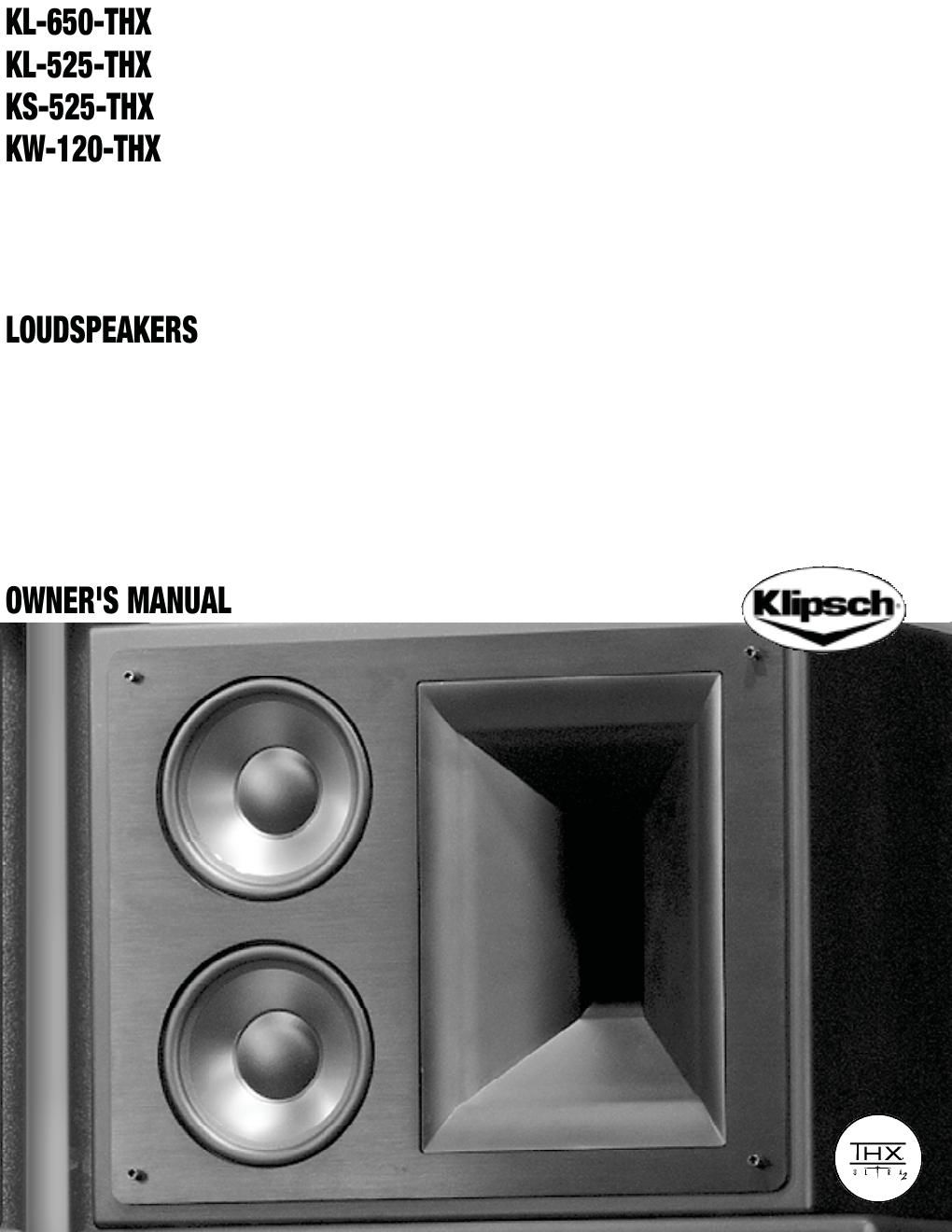Klipsch KS 525 THX Owners Manual
This is the 7 pages manual for Klipsch KS 525 THX Owners Manual.
Read or download the pdf for free. If you want to contribute, please upload pdfs to audioservicemanuals.wetransfer.com.
Page: 1 / 7
